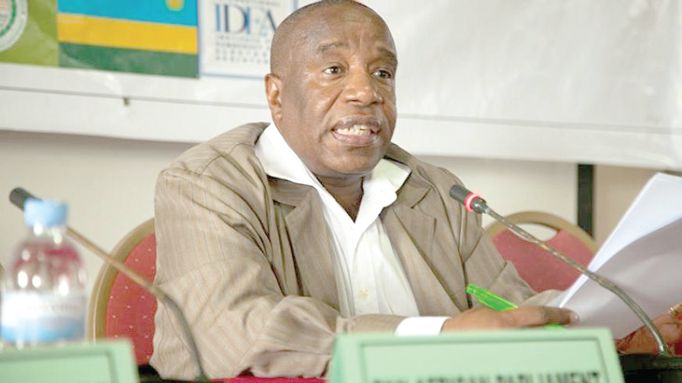
‘Women hold key to transforming politics’
Civil society organisations in good governance promotion in Africa have urged leaders across the continent to prioritise efforts which would increase the participation of women in governance, saying they will provide the difference critical for Africa’s transformation.
Deliberating on how to resolve the under-representation of women in politics at a meeting to precede the African Union Summit in Addis Ababa, Ethiopia, the participants said women had the makeup of the new breed of politicians the continent needed.
Women leaders, they observed, had the requisite zeal and the commitment towards addressing specific issues affecting them; children, the less privileged and, indeed, that of the entire society.
The discussion was on the topic: “Women’s participation in African Politics - Challenges and opportunities”. The European Union-funded meeting on the theme: “Mobilising Civil Society Support for Implementation of the African Governance Architecture” (PANAF).
Shaping the mindset
The Director of Political Affairs, African Union Commission, Dr Khabele Matlosa, in her contribution to the subject, said there was the urgent need to shape the mindset of African politicians who were the primary actors of governance on gender equity and empowerment.
Advertisement
He stated: “This is a big challenge that all governments are seeking solutions to. This problem cuts across the whole of Africa - from Algeria to Zimbabwe - and we need to change the mindset from self-interested to transformative and visionary leadership.”
The root causes of the problems, he noted, were dictatorship and lack of internal democratic practices in political parties.
“Conventionally, a politician can rise to become a Parliamentarian candidate or become a Cabinet Member by rising through the ranks of the party, so that is where this seed is planted,” he noted.
“If there is weak internal democracy, how would they ensure the effective practice of democracy when they come into power?”
To address help these challenges, Dr Matlosa stated the Political Affairs Department of the AU had initiated some moves to strengthen the practice of democracy by political parties.
Participation at the local level
For her part, the Advocacy and Campaigns Manager at ActionAid Ghana, Madam Margaret Brew-Ward, who moderated the discussions, said women’s participation in governance, especially in Ghana, should begin from the local level elections to build their confidence to thrive.
Madam Brew-Ward urged women to look beyond challenges, including intimidation, culture barriers, and also make themselves readily available to contribute to nation building.
The African Charter for Democracy, Elections and Governance’s (ACDEG) provisions required women to be empowered to enable them to play effective roles in governance.
The provisions were motivated by the Constitutive Act of the African Union (AU), which set out international standards for good governance and democracy.
They include issues of ensuring human and people’s rights, consolidating democratic institutions and culture, as well as ensuring good governance, the rule of law, free and fair elections, and condemning the unconstitutional changes of government.
The CSO collaborators in the PANAF project are the Media Foundation for West Africa, East and Southern African Development Community, East African Civil Society Organisations’ Forum, West Africa Civil Society Forum, Mass Public Opinion Institute and the ActionAid of Ghana, Sierra Leone, Nigeria, Mozambique, Zambia, Uganda, Zimbabwe and Tanzania.—GNA
